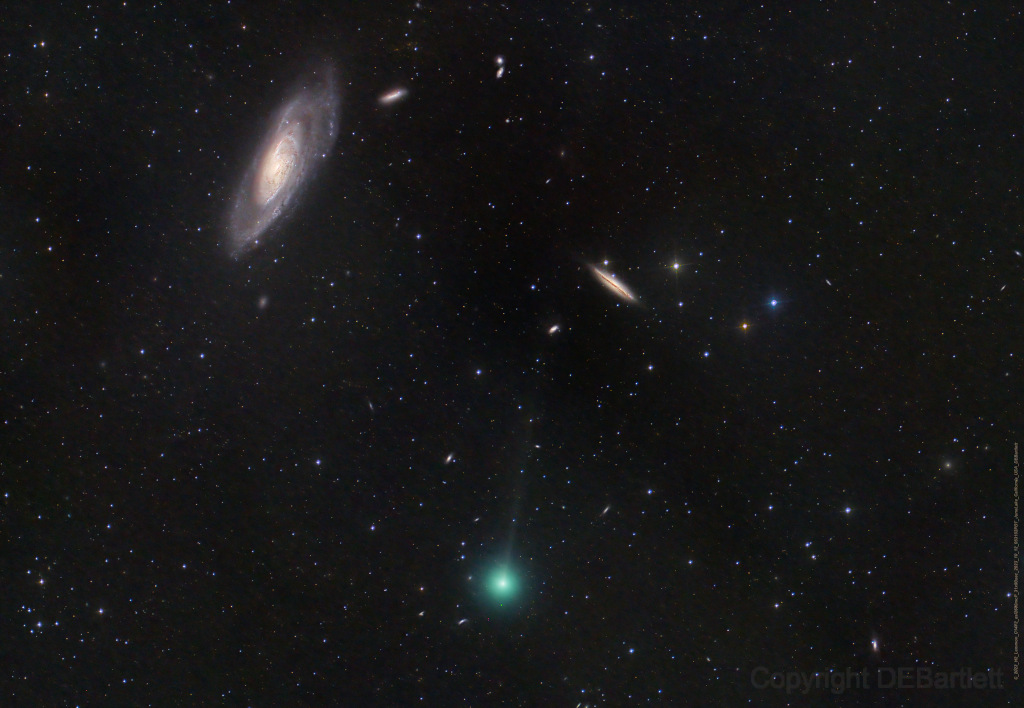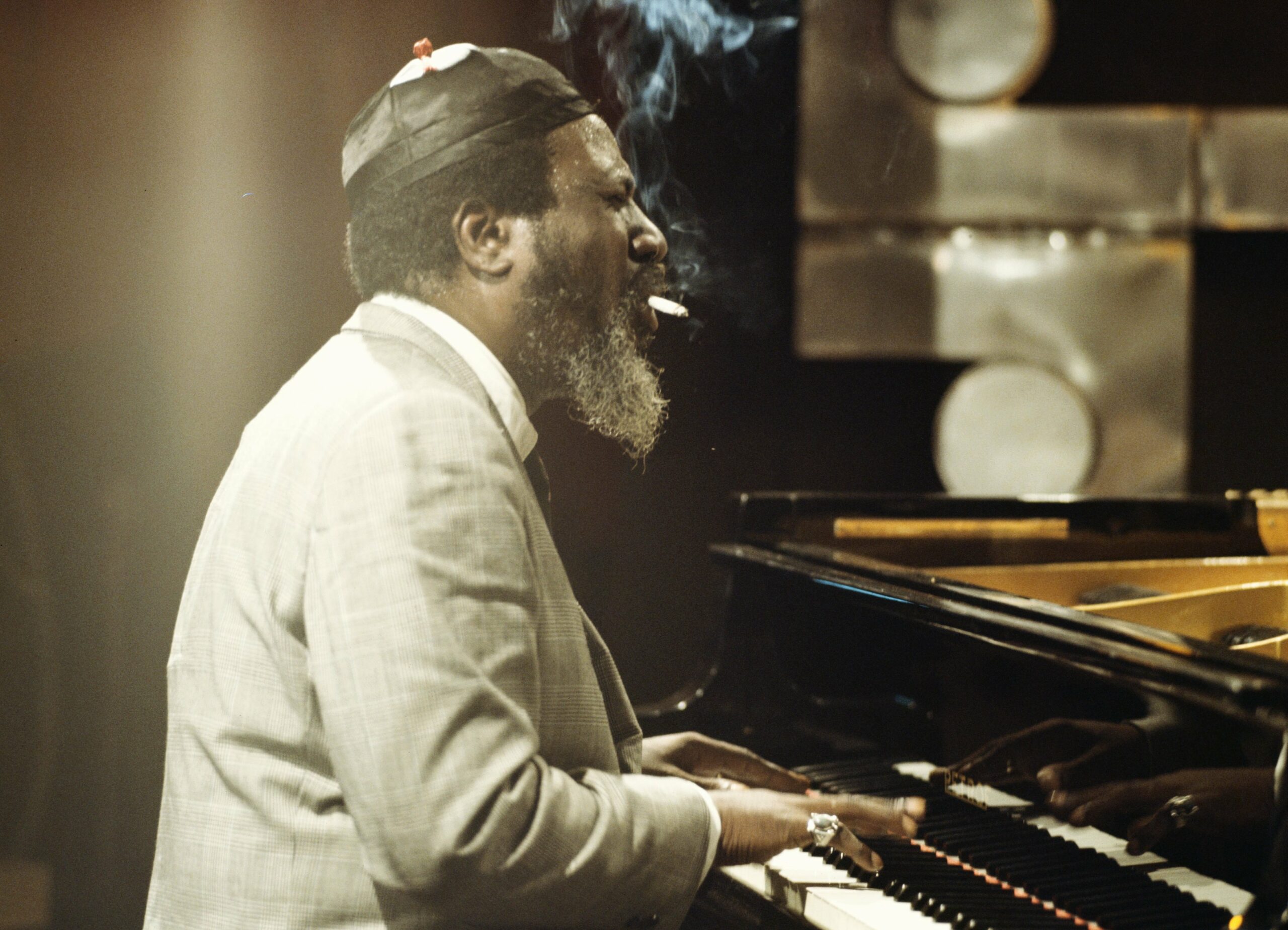Blog
Carlos Wesley “Don” Byas (October 21, 1913 – August 24, 1972) was an American jazz tenor saxophonist, associated with swing and bebop. He played with Count Basie, Duke Ellington, Art Blakey, and Dizzy Gillespie, among others, and also led his own band. He lived in Europe for the last 26 years of his life.
Byas was born in Muskogee, Oklahoma, United States. Both of Byas’ parents were musicians. His mother played the piano, and his father, the clarinet. Byas began his musical education in the European classical tradition, learning to play violin, clarinet and alto saxophone, which he played until the end of the 1920s.
Benny Carter, who played many instruments, was his idol at this time. Byas started to perform in local orchestras at the age of 17, with Bennie Moten, Terrence Holder and Walter Page. He founded and led his own college band, Don Carlos and His Collegiate Ramblers, during 1931–1932, at Langston College, Oklahoma.
more...John Birks “Dizzy” Gillespie October 21, 1917 – January 6, 1993) was an American jazz trumpeter, bandleader, composer, educator and singer. He was a trumpet virtuoso and improviser, building on the virtuosic style of Roy Eldridge but adding layers of harmonic and rhythmic complexity previously unheard in jazz. His combination of musicianship, showmanship, and wit made him a leading popularizer of the new music called bebop. His beret and horn-rimmed spectacles, scat singing, bent horn, pouched cheeks, and light-hearted personality have made him an enduring icon.
In the 1940s, Gillespie, with Charlie Parker, became a major figure in the development of bebop and modern jazz. He taught and influenced many other musicians, including trumpeters Miles Davis, Jon Faddis, Fats Navarro, Clifford Brown, Arturo Sandoval, Lee Morgan, Chuck Mangione, and balladeer Johnny Hartman.
He pioneered Afro-Cuban jazz and won several Grammy Awards. Scott Yanow wrote, “Dizzy Gillespie’s contributions to jazz were huge. One of the greatest jazz trumpeters of all time, Gillespie was such a complex player that his contemporaries ended up being similar to those of Miles Davis and Fats Navarro instead, and it was not until Jon Faddis’s emergence in the 1970s that Dizzy’s style was successfully recreated [….] Gillespie is remembered, by both critics and fans alike, as one of the greatest jazz trumpeters of all time”.
The youngest of nine children of Lottie and James Gillespie, Dizzy Gillespie was born in Cheraw, South Carolina. His father was a local bandleader, so instruments were made available to the children. Gillespie started to play the piano at the age of four.
more...Bates Motel Orchestra performing at the Village of Terror in Chippewa Valley, Wis 2010
more...Performing at the monthly Mt Zion Shabbat for the Soul with Tami Morse. Friday October 20th 6:30pm 2023
more...Galaxies abound in this sharp telescopic image recorded on October 12 in dark skies over June Lake, California. The celestial scene spans nearly 2 degrees within the boundaries of the well-trained northern constellation Canes Venatici. Prominent at the upper left 23.5 million light-years distant is big, beautiful spiral galaxy NGC 4258, known to some as Messier 106. Eye-catching edge-on spiral NGC 4217 is above and right of center about 60 million light-years away. Just passing through the pretty field of view is comet C/2023 H2 Lemmon, discovered last April in image data from the Mount Lemmon Survey. Here the comet sports more of a lime green coma though, along with a faint, narrow ion tail stretching toward the top of the frame. This visitor to the inner Solar System is presently less than 7 light-minutes away and still difficult to spot with binoculars, but it’s growing brighter. Comet C/2023 H2 Lemmonwill reach perihelion, its closest point to the Sun, on October 29 and perigee, its closest to our fair planet, on November 10 as it transitions from morning to evening northern skies.

Thomas Earl Petty (October 20, 1950 – October 2, 2017) was an American musician. He was the leader of the rock bands Tom Petty and the Heartbreakers and Mudcrutch. Petty was also a member of the late 1980s supergroup the Traveling Wilburys, and had success as a solo artist.
Petty had many hit records. Hit singles with the Heartbreakers include “American Girl” (1976), “Don’t Do Me Like That” (1979), “Refugee” (1980), “The Waiting” (1981), “Don’t Come Around Here No More” (1985) and “Learning to Fly” (1991). Petty’s solo hits include “I Won’t Back Down” (1989), “Free Fallin’” (1989), and “You Don’t Know How It Feels” (1994). Solo or with the Heartbreakers, he had hit albums from the 1970s through the 2010s and sold more than 80 million records worldwide, making him one of the best-selling music artists of all time. Petty and the Heartbreakers were inducted into the Rock and Roll Hall of Fame in 2002. Petty was honored as MusiCares Person of the Year in February 2017 for his contributions to music and for his philanthropy. He also had a minor acting career, most notably starring in a recurring role as the voice of Lucky Kleinschmidt in the animated comedy series King of the Hill from 2004 to the show’s end in 2009.
Petty died of an accidental drug overdose at the age of 66, one week after the end of the Heartbreakers’ 40th Anniversary Tour in 2017.
Petty was born on October 20, 1950, in Gainesville, Florida, the first of two sons of Kitty Petty (nee Avery), a local tax office worker, and Earl Petty, who was a traveling salesman. His brother Bruce was seven years younger.
more...Eddie Harris (October 20, 1934 – November 5, 1996) was an American jazz musician, best known for playing tenor saxophone and for introducing the electrically amplified saxophone. He was also fluent on the electric piano and organ. His best-known compositions are “Freedom Jazz Dance”, popularized by Miles Davis in 1966, and “Listen Here”.
Harris was born and grew up in Chicago. His father was from Cuba and his mother from Mississippi. He studied music under Walter Dyett at DuSable High School, as had many other successful Chicago musicians (including Nat King Cole, Clifford Jordan, Johnny Griffin, Gene Ammons, Julian Priester, and others). He later studied music at Roosevelt University; by that time he was proficient on piano, vibraphone, and tenor saxophone. While in college he performed professionally with Gene Ammons.
more...Charles Edward Ives ( October 20, 1874 – May 19, 1954) was an American modernist composer,one of the first American composers of international renown. His music was largely ignored during his early career, and many of his works went unperformed for many years. Later in life, the quality of his music was publicly recognized through the efforts of contemporaries like Henry Cowell and Lou Harrison, and he came to be regarded as an “American original”. He was also among the first composers to engage in a systematic program of experimental music, with musical techniques including polytonality, polyrhythm, tone clusters, aleatory elements, and quarter tones. His experimentation foreshadowed many musical innovations that were later more widely adopted during the 20th century. Hence, he is often regarded as the leading American composer of art music of the 20th century.
Sources of Ives’s tonal imagery included hymn tunes and traditional songs; he also incorporated melodies of the town band at holiday parade, the fiddlers at Saturday night dances, patriotic songs, sentimental parlor ballads, and the melodies of Stephen Foster.
Ives was born in Danbury, Connecticut, on October 20, 1874, the son of George (Edward) Ives (August 3, 1845 – November 4, 1894), a US Army bandleader in the American Civil War, and his wife, Mary Elizabeth Ives (née Parmelee, January 2, 1849 or 1850 – January 25, 1929). The Iveses were one of Danbury’s leading families, and they were prominent in business and civic improvement. They were similarly active in progressive social movements of the last century, including the abolition of slavery.
more...The core of the Tangos is the letra, three or four octosyllabic lines. As with the Bulerías, the the first line is often repeated, and the repeated lines are balanced by a longer consequent phrase.
Before a letra a Tangos may open with a guitar falseta or an estribillo, in which the singer sings a traditional melody with nonsense syllables (“le le le, ni, ni, etc.). The estribillo may return throughout the piece as a chorus after a letra.
Once the letra begins it can be broken up several times with remates performed by the dancer. This usually occurs between the first and second line of the letra, and often occurs more frequently, giving the dance a improvisatory air.
Thus, the letras themselves can be further broken up with remates or escobillas from the dancer or with guitar falsetas. A dancer may also choose to perform a long footwork passage accompanied by compás patterns from the guitarist and palmista (an escobilla performed “a palo seco” or dry, without guitar accompaniment).
As in Bulerías, Tangos can end with a cierre – a closing pattern – that is based on a different set of chords than the letras. The dancer can also perform a cue (llamada) that leads into a traveling exit – a salida.
It’s also common to end certain forms in flamenco with a macho, a transition into a faster, related form. Tangos wiil often end with a brief Rumba Flamenca. Similarly, Tientos will often end with a brief Tangos.
more...
Thelonious Monk performs in London in 1970.
The Great Nebula in Orion has hidden stars. To the unaided eye in visible light, it appears as a small fuzzy patch in the constellation of Orion. But this image was taken by the Webb Space Telescope in a representative-color composite of red and very near infrared light. It confirms with impressive detail that the Orion Nebula is a busy neighborhood of young stars, hot gas, and dark dust. The rollover image shows the same image in representative colors further into the near infrared. The power behind much of the Orion Nebula (M42) is the Trapezium – a cluster of bright stars near the nebula’s center. The diffuse and filamentary glow surrounding the bright stars is mostly heated interstellar dust. Detailed inspection of these images shows an unexpectedly large number of Jupiter-Mass Binary Objects (JuMBOs), pairs of Jupiter-mass objects which might give a clue to how stars are forming. The whole Orion Nebula cloud complex, which includes the Horsehead Nebula, will slowly disperse over the next few million years.

Farid al-Atrash (Arabic: فريد الأطرش; 1917 – December 26, 1974), also written Farid El-Atrache, was a Syrian-Egyptian singer, composer, and actor. Having immigrated to Egypt at the age of only nine years old with his mother and siblings, he studied there under numerous respected musicians.
Al-Atrash embarked on a highly successful career spanning more than four decades—recording 500 songs and starring in 31 movies.Sometimes referred to as “malek al-oud”, he is one of the most important figures of 20th- century Arab music.
more...Marcus Vinícius da Cruz e Mello Moraes (19 October 1913 – 9 July 1980), better known as Vinícius de Moraes and nicknamed O Poetinha (“The little poet”), was a Brazilian poet, diplomat, lyricist, essayist, musician, singer, and playwright. With his frequent and diverse musical partners, including Antônio Carlos Jobim, his lyrics and compositions were instrumental in the birth and introduction to the world of bossa nova music. He recorded numerous albums, many in collaboration with noted artists, and also served as a successful Brazilian career diplomat.
more...Willie Lee Perryman (October 19, 1911 – July 25, 1985), usually known professionally as Piano Red and later in life as Dr. Feelgood, was an American blues musician, the first to hit the pop music charts. He was a self-taught pianist who played in the barrelhouse blues style (a loud percussive type of blues piano suitable for noisy bars or taverns). His performing and recording careers emerged during the period of transition from completely segregated “race music” to rhythm and blues, which was marketed to both white and black audiences. Some music historians credit Perryman’s 1950 recording “Rocking With Red” for the popularization of the term rock and roll in Atlanta. His simple, hard-pounding left hand and his percussive right hand, coupled with his cheerful shout, brought him considerable success over three decades.
Perryman was born on a farm near Hampton, Georgia, United States, where his parents, Ada and Henry Perryman, were sharecroppers. He was part of a large family, though sources differ on exactly how many brothers and sisters he had. Perryman was an albino African American, as was his older brother Rufus, who also had a blues piano career as “Speckled Red“.
more...Laura Nyro born Laura Nigro; October 18, 1947 – April 8, 1997) was an American songwriter and singer. She achieved critical acclaim with her own recordings, particularly the albums Eli and the Thirteenth Confession (1968) and New York Tendaberry (1969), and had commercial success with artists such as Barbra Streisand and the 5th Dimension recording her songs. Wider recognition for her artistry was posthumous while her contemporaries such as Elton John idolized her. She was praised for her strong emotive vocal style and 3-octave mezzo-soprano vocal range.
Between 1968 and 1970, a number of artists had hits with her songs: The 5th Dimension with “Blowing Away“, “Wedding Bell Blues“, “Stoned Soul Picnic“, “Sweet Blindness“, and “Save the Country“; Blood, Sweat & Tears and Peter, Paul and Mary with “And When I Die“; Three Dog Night and Maynard Fergusonwith “Eli’s Comin’“; and Barbra Streisand with “Stoney End“, “Time and Love”, and “Hands off the Man (Flim Flam Man)”. Nyro’s best-selling single was her recording of Carole King‘s and Gerry Goffin‘s “Up on the Roof“.
Nyro was posthumously inducted into the Songwriters Hall of Fame in 2010, and into the Rock and Roll Hall of Fame in 2012, Nyro was born Laura Nigro in the Bronx, the daughter of Louis Nigro, a piano tuner and jazz trumpeter, and Gilda (née Mirsky) Nigro, a bookkeeper. Laura had a younger brother, Jan Nigro, who has become a children’s musician. Laura was of Russian Jewish and Polish Jewish descent, with Italian American ancestry from her paternal grandfather. Her father gave her the name “Laura”, after hearing the title theme of the 1944 film Laura, In late 1996, Nyro, like her mother, was diagnosed with ovarian cancer. After the diagnosis, Columbia Records, with Nyro’s involvement, prepared a two-CD retrospective of material from her years at the label. She lived to see the release of Stoned Soul Picnic: The Best of Laura Nyro in 1997.
more...Israelis performing on Arabic Instruments
more...More Posts
- Cosmo 30 Doradus
- Jerry Goldsmith
- Rufus Reid
- Manu Dibango
- Chick Webb
- World Music Fanfare Ciocǎrlia
- Daily Roots Augustus Pablo
- Johnny Heartsman
- Cosmo HB3
- Carole King
- Carmen Miranda
- Walter Page
- World Music Fatoumata Diawara
- Daily Roots Tapper Zukie
- Edward Ray Sharpe
- Floyd Dixon
- Little Shop of Horrors 2025
- Cosmo NGC 7635
- Tom Rush
- Shadia